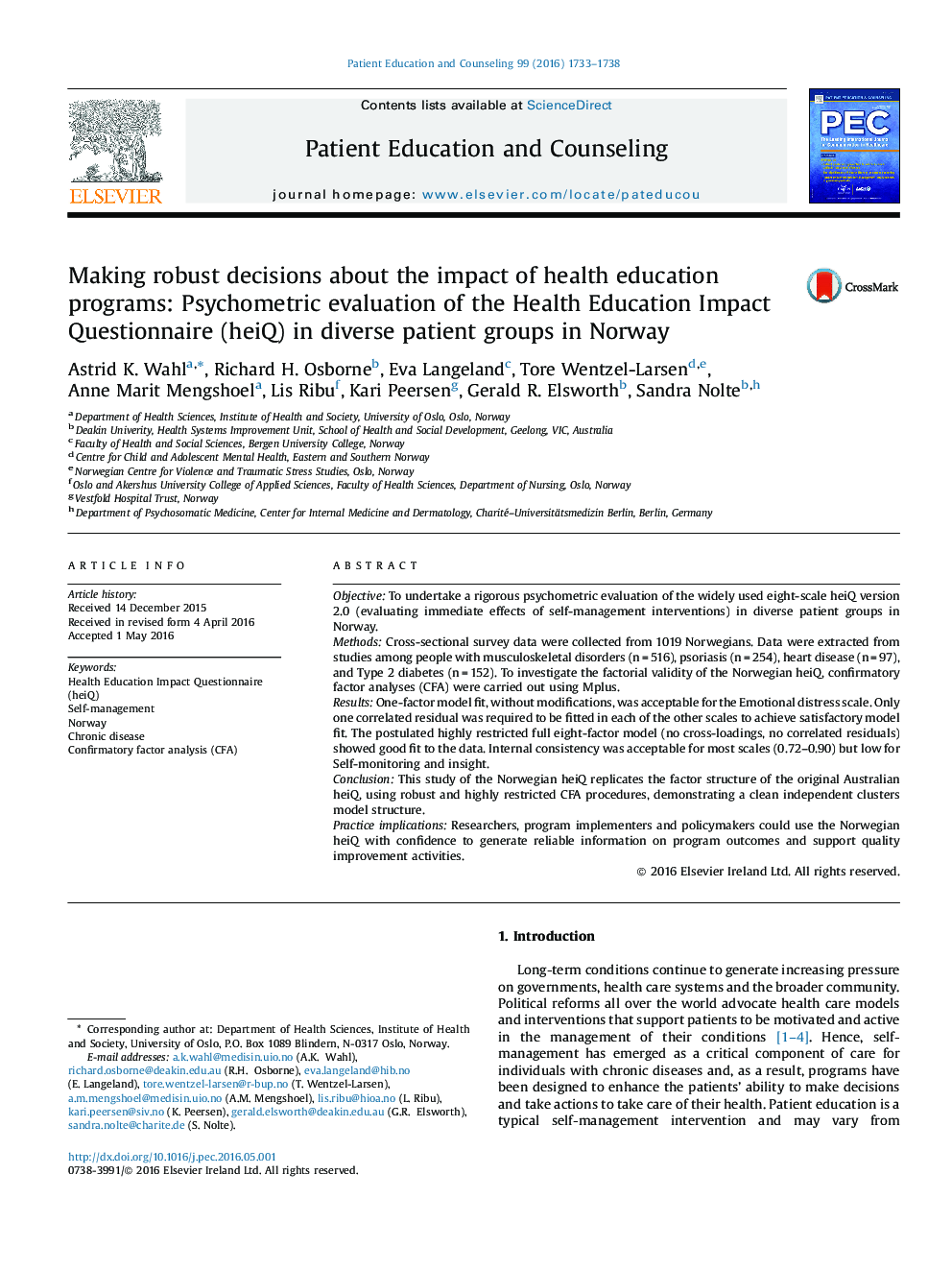| Article ID | Journal | Published Year | Pages | File Type |
|---|---|---|---|---|
| 3813489 | Patient Education and Counseling | 2016 | 6 Pages |
•Self-management interventions (SMI) are critical components of care in chronic diseases.•The Health Education Impact Questionnaire (heiQ) measures effects of SMI.•The Norwegian version of the heiQ replicates original factor structure using CFA.
ObjectiveTo undertake a rigorous psychometric evaluation of the widely used eight-scale heiQ version 2.0 (evaluating immediate effects of self-management interventions) in diverse patient groups in Norway.MethodsCross-sectional survey data were collected from 1019 Norwegians. Data were extracted from studies among people with musculoskeletal disorders (n = 516), psoriasis (n = 254), heart disease (n = 97), and Type 2 diabetes (n = 152). To investigate the factorial validity of the Norwegian heiQ, confirmatory factor analyses (CFA) were carried out using Mplus.ResultsOne-factor model fit, without modifications, was acceptable for the Emotional distress scale. Only one correlated residual was required to be fitted in each of the other scales to achieve satisfactory model fit. The postulated highly restricted full eight-factor model (no cross-loadings, no correlated residuals) showed good fit to the data. Internal consistency was acceptable for most scales (0.72–0.90) but low for Self-monitoring and insight.ConclusionThis study of the Norwegian heiQ replicates the factor structure of the original Australian heiQ, using robust and highly restricted CFA procedures, demonstrating a clean independent clusters model structure.Practice implicationsResearchers, program implementers and policymakers could use the Norwegian heiQ with confidence to generate reliable information on program outcomes and support quality improvement activities.
